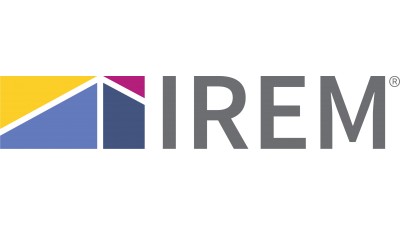Rio Olympics & Rooftop Farming: 5 Things We Learned At IREM's Fall Conference iTalks
IREM's 2016 annual Fall Conference featured a series of mini-talks—modeled after TED talks—hosted by a number of leading industry experts in a wide variety of topics, including drone technology, volunteer output maximization and even the Rio Olympics. Here are the five coolest things we learned.
1) Rooftop farming is a key to unlocking long-term, cost-effective sustainability.

Rooftop gardens and farms certainly come with their fair share of both financial and operational obstacles to success, but as arable land area gives way to urban sprawl and the global population steadily rises, they are quickly becoming a viable option for fresh food—particularly for marginalized and disenfranchised communities. Rooftop farming not only allows urban residents access to local produce, but to goods and raw foods farmed in other parts of the country. Lufa Farms features a prototype of a 31k SF farm, feeding around 2,000 people and offering them a viable, healthy choice of nutritious and fresh fruits and vegetables.
2) The Rio Olympics revolutionized “making the best out of a bad situation.”

Rio’s infrastructure may have been literally falling apart in the months leading up to the 2016 Summer Olympics, but Auxiliadora Predial Rio’s Leonardo C.V. Schneider maintains that Rio real estate underwent hefty growth during the seven-year push to transform itself into the latest Olympic city. Over the course of 17 days, Brazil’s largest city hosted nearly 11,000 athletes from 206 nations in addition to 1 million tourists. Rio real estate witnessed high levels of appreciation in neighborhoods surrounding the Olympic Stadium, which benefited from urban mobility investments. The Olympics positively affected the real estate market on buildings of higher than 250% price valuation numbers.
3) Drones are changing the face of tall building façade inspection.

Traditionally, property managers inspect tall buildings by utilizing suspended scaffolding and bosun’s chairs. The process costs developers approximately $2,500/day for four to five days to rig and drop. Osprey Assessments' Gordon Dowrey observes that utilizing drone services significantly lessens human time spent on high, risky scaffolding, just as it enables complete coverage of the façade and high-resolution images. The tighter scope of repair work results in lowered costs and simpler change orders in the case of unpredictable weather and building conditions.
4) Real estate principles can be applied to charitable causes.

Practitioners at property and asset management firms bring numerous skills to the table for charitable causes—and they may not even realize it. Property managers, owners and developers can apply their skills to more than just properties. Real estate companies can assist nonprofits with long-term planning, budgeting, space management, staff and/or volunteer management, and the creation of business continuation and emergency plans. Your firm may not know how to evacuate an animal shelter, for instance, but it is well-versed in evacuating and moving people around on a floor plan. Cher Zucker-Maltese, Emeritus CPM, asserts that asset management firms can apply the same principles they utilize for tenants and buildings to those sheltering volunteers, homeless people, distressed animals and more.
5) Volunteers have to be organized for effective use.

Volunteers need to be taken care of just as much as employees; they need to both feel appreciated and know that their talent and valuable time are being spent on a meaningful endeavor. The “triple-threat” volunteer—with time/availability, usable skill sets and passion—is difficult to find for any project, and once you do, locating and utilizing them properly is key. IREM Greater Denver Chapter's Jodi Holstein breaks down volunteers into three distinct categories: volun-steers (leaders), the volun-tolds (who receive instructions and execute them accordingly), and the volun-duds (who routinely make commitments to projects and events but fail to deliver).
To learn more about Bisnow partner IREM—and view all the iTalks, including the ones not mentioned in this article—click here.

